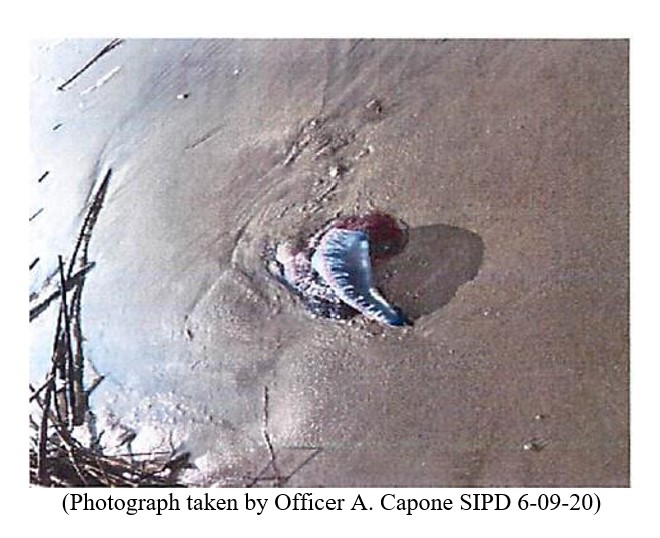Floodplain Info
Learn More
 The Official Web Site of the State of South Carolina
The Official Web Site of the State of South Carolina
Sign up for Everbridge, the Town’s Emergency Notification System, to receive emergency texts and emails, and the Town's Monthly Newsletter to stay up to date on all of Town's meetings, projects and special events.
The beach access path at Station 32 is closed due to storm impacts until further notice.

PRESS RELEASE
June 9, 2020
Public Safety officials have recovered what appears to be a Portuguese man o' war at Sullivan's Island. While there have been no reports of stings, this is the first man o' war which has been identified on the beach. Last week there were reports of Portuguese man o' war at Folly Beach.
The Portuguese man o' war is a marine hydrozoan of the Physaliidae family commonly found in the Atlantic Ocean. The man o' war lives on the ocean surface and has no means of propulsion. Wind and tide conditions often push them close to the beach or cause them to wash ashore. Its long venomous tentacles can inflict a painful sting to swimmers or even beach walkers. Stings will generally cause red welts on the skin that can last up to three days often resulting in severe dermatitis. Pain generally subsides after three hours. In extreme cases the venom can travel to the lymph nodes and cause symptoms that mimic an allergic reaction such as swelling of the larynx, airway blockage or cardiac distress.
If stung, the suggested remedy is to rinse immediately with salt water to wash away any microscopic nematocysts. Studies show fresh water is less effective as a treatment. In the event of a severe allergic reaction dial 9-1-1 immediately.
In the coming weeks beach visitors should exercise caution in the ocean and on the beach to avoid contact with the Portuguese man o' war.